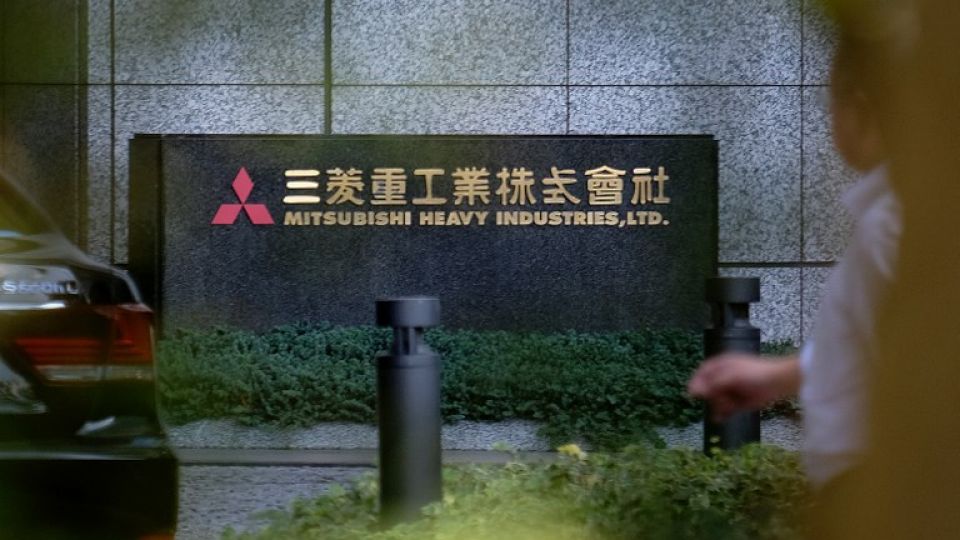November 30, 2018
Fallout continues over South Korean ruling that Mitsubishi owes war time reparations.
South Korea’s Supreme Court dismissed appeals by Mitsubishi Heavy Industries Ltd. on Thursday, upholding lower court rulings in two lawsuits that ordered the company to pay damages to South Korean former workers who were mobilized from the Korean Peninsula during World War II.
In one lawsuit, filed by five former requisitioned workers, the top court ordered Mitsubishi Heavy to pay compensation of 80 million won (about ¥8 million) to each of the plaintiffs.
In the other lawsuit, filed separately by five other plaintiffs, including members of the Korean Women’s Volunteer Labor Corps, the top court ordered Mitsubishi Heavy to pay compensation of 100 million won to 150 million won (about ¥10 million to ¥15 million) to each plaintiff.
The court decision finalized the cases, in which the Japanese company has lost.
In legal battles over former requisitioned labor, the South Korean top court handed down its first ruling on Oct. 30 by ordering Nippon Steel & Sumitomo Metal Corp. to pay damages. The latest two rulings followed the precedent set by that top court decision. At least 12 similar suits, including one for which a high court ruling was due to be handed down later on Thursday afternoon, have been pending in lower courts. Japanese companies are highly likely to face rulings that will order them to pay compensation in succession.
As a South Korean support group has begun preparations to file new lawsuits, the relationship between Japan and South Korea appears set for inevitable worsening.
Regarding the issue of former requisitioned workers’ right to seek compensation, the Japanese government has taken the stance that the issue has been “settled completely and finally” under the 1965 Agreement on the Settlement of Problems concerning Property and Claims and on Economic Cooperation between Japan and the Republic of Korea. Under the administration of President Roh Moo-hyun in 2005, the South Korean government also acknowledged that the individual right to seek compensation by former requisitioned workers and relevant others was not recognized. Tokyo has strongly urged Seoul to deal with the issue appropriately.
On Thursday, however, the top court ruled that the 1965 agreement does not cover the right of the plaintiffs and relevant others. The court recognized their right to compensation for “illegal acts against humanity committed by a Japanese company in direct connection with Japan’s illegal colonial rule and war of aggression against the Korean Peninsula.”
Regarding the defendant’s argument that the statute of limitations for making claims has expired, the top court said it upheld the lower court’s ruling that rejecting the performance of obligations to the plaintiffs is unjustified and amounts to the abuse of power, which is against the principle of good faith and trust.
The lawsuit involving the former requisitioned workers was filed with the Busan District Court in May 2000. The district and high court rulings went against the plaintiffs. After the Supreme Court dismissed the high court ruling in May 2012 and remanded the case, the Busan High Court ordered Mitsubishi Heavy to pay compensation in July 2013. The five former requisitioned workers have died, and 23 other people, including their surviving family members, have taken over the case as the plaintiffs.
The other lawsuit was filed by former members of the Korean Women’s Volunteer Labor Corps, and surviving family members, with the Gwangju District Court in October 2012. The plaintiffs won the case at the district and high courts.
Mitsubishi Heavy appealed the rulings in both cases to the Supreme Court.
The plaintiffs of the two lawsuits and others also participated in damages suits filed in Japan against the company, but Japan’s Supreme Court dismissed the plaintiffs’ claims in 2007 and 2008.
MHI: Rulings regrettable
Following Thursday’s rulings, Mitsubishi Heavy Industries (MHI) issued a statement, saying, “These rulings are deeply regrettable, as they violate the [1965] agreement and are contrary to the view of the Japanese government and the final and binding judgments of the Supreme Court of Japan.”
“Going forward, MHI will take appropriate measures while maintaining communication with the Japanese government about this issue,” it added.
Kono decries rulings
Foreign Minister Taro Kono strongly protested the rulings by the South Korean Supreme Court upholding damages payments to wartime workers.
“These decisions are extremely regrettable and totally unacceptable … Above all, the decisions completely overthrow the legal foundation of the friendly and cooperative relationship that Japan and the Republic of Korea have developed since the normalization of diplomatic relations in 1965,” he said in a statement.
Kono said the issue of seeking compensation has been “settled completely and finally” under the 1965 agreement. He strongly urged the South Korean government to take appropriate measures, including immediate action to remedy such a violation of international law.
If appropriate action is not taken immediately, Kono said in the statement, “Japan will continue to examine all possible options, including international adjudication and countermeasures and take resolute actions.”
On Thursday, Vice Foreign Minister Takeo Akiba summoned South Korean Ambassador to Japan Lee Su Hoon to the Foreign Ministry and lodged a protest over the matter.
The South Korean Foreign Ministry said after the rulings that it respects the decisions by the judicial branch. The ministry called the Japanese government’s “continuing excessive reaction” to the rulings “very regrettable.”


